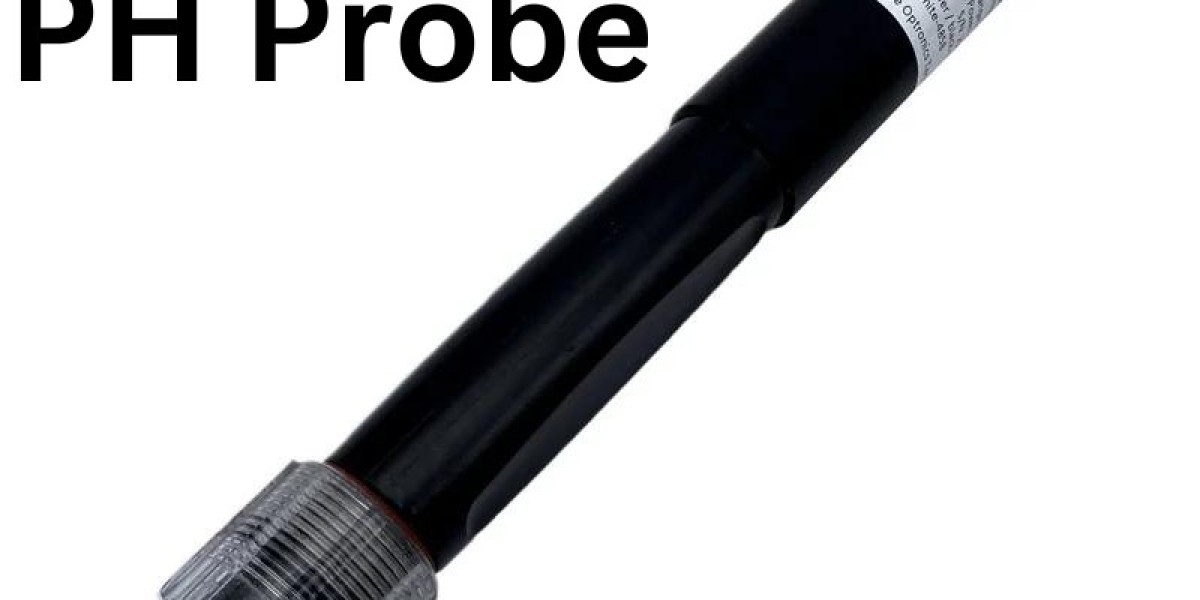Whether you're a scientist conducting research, a farmer managing soil health, or a technician monitoring industrial processes, understanding how pH probes work and why they are important is crucial.
What is a pH Probe?
A pH probe, also known as a pH electrode, is a device used to measure the pH level of a solution. The pH scale ranges from 0 to 14, with 7 being neutral, values below 7 indicating acidity, and values above 7 indicating alkalinity. The probe consists of a glass electrode, a reference electrode, and often a temperature sensor, which work together to provide a precise reading. These probes operate based on the principle of potentiometry, where the voltage difference between the electrodes is related to the hydrogen ion concentration in the solution, giving the pH value.
How Do pH Probes Work?
pH probes consist of two main components: a glass electrode and a reference electrode. The glass electrode is sensitive to hydrogen ions and produces a voltage when exposed to a solution. The reference electrode, which is usually filled with a stable electrolyte, provides a constant voltage that serves as a comparison for the glass electrode. The difference in voltage between the two electrodes is used to calculate the pH of the solution.
To ensure accurate readings, pH probes are often calibrated using standard buffer solutions with known pH values. Calibration ensures that the probe provides accurate measurements, compensating for factors such as temperature or electrode wear.
Applications of pH Probes
Scientific Research: pH probes are essential tools in laboratories, where they are used for experiments involving acids, bases, and buffers. Accurate pH measurements are critical in fields like biochemistry, pharmacology, and environmental science, where even slight changes in pH can influence the outcome of an experiment or process.
Environmental Monitoring: pH is a key parameter in monitoring the health of natural water systems. A pH probe can measure the acidity or alkalinity of water bodies, helping assess the impact of pollutants, agricultural runoff, or acid rain on aquatic life. Monitoring pH in streams, rivers, and lakes ensures that ecosystems are maintained and protected.
Agriculture: In farming, soil pH can significantly affect plant growth and nutrient availability. pH probes help farmers monitor and adjust soil pH to optimize crop yields. Certain plants thrive in acidic soil, while others prefer alkaline conditions. Regular pH testing ensures plants receive the nutrients they need to grow strong and healthy.
Industrial and Manufacturing Processes: pH is an important parameter in industries like food production, chemical manufacturing, and water treatment. In these industries, maintaining specific pH levels is crucial for product quality, safety, and efficiency. For instance, in food processing, pH probes ensure that products like yogurt, beer, and cheese are produced within the desired acidity range.
Aquariums and Aquaculture: pH probes are widely used in the care of aquatic animals, where water quality is crucial for the health of fish and other organisms. Whether in a commercial fish farm or a home aquarium, maintaining the correct pH level ensures a healthy environment for aquatic species.
Conclusion
pH probes are indispensable tools for monitoring and measuring the acidity or alkalinity of solutions across various industries and scientific disciplines. Whether for research, environmental protection, agriculture, or industrial processes, these probes offer accurate and real-time data essential for maintaining optimal conditions. Understanding how pH probes work, their applications and their importance can help individuals in various fields make informed decisions, ensure product quality, and protect ecosystems. As technology advances, pH probes continue to improve, becoming more precise and easier to use, ensuring they remain a valuable tool for the future.








